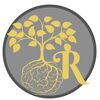Becoming A Regenerative Changemaker
The goal of the life plan is to bring together the work you have done in identifying your strengths, vision and mission, identifying your values, your life-principles and the habits and planning you can take to achieve these.
Nothing matters unless you understand what makes you tick and who you want to be. The purpose of this life plan is to identify what matters to you the most and help put a strategy together that fits your level of commitment and vision.
The only thing separating us from greatness is a vision and a plan for achieving greatness. When you’re fighting for a cause, a dream, something greater than yourself, you will find the enthusiasm, passion, and joy that make life a great adventure. The key is identifying your cause and knowing who you want to be.
When creating change, mindsets and paradigms matter. At times we work on changing what we or others think about, rarely do we actively work on how we think - examining paradigms, recognizing and choosing frameworks to structure our thinking, identifying the values and beliefs that drive our actions. Realizing the potential for local and global regeneration requires that we upgrade our how we think, not just what we think about or what we do.
A regenerative human culture is healthy, resilient and adaptable; it cares for the planet and it cares for life in the awareness that this is the most effective way to create a thriving future for all of humanity. The concept of resilience is closely related to health, as it describes the ability to recover basic vital functions and bounce back from any kind of temporary breakdown or crisis.
When we aim for sustainability from a systemic perspective, we are trying to sustain the pattern that connects and strengthens the whole system. Sustainability is first and foremost about systemic health and resilience at different scales, from local, to regional and global.
As Bill Reed puts it: “Sustainability is a progression towards a functional awareness that all things are connected; that the systems of commerce, building, society, geology, and nature are really one system of integrated relationships; that these systems are co-participants in the evolution of life”
Instead of doing less damage to the environment, it is necessary to learn how we can participate with the environment — using the health of ecological systems as a basis for design. The shift from a fragmented worldview to a whole systems mental model is the significant leap our culture must make.
Regenerative development is about building the capacity and capability in people, communities, and other natural systems to renew, evolve, and thrive.
Nothing matters unless you understand what makes you tick and who you want to be. The purpose of this life plan is to identify what matters to you the most and help put a strategy together that fits your level of commitment and vision.
The only thing separating us from greatness is a vision and a plan for achieving greatness. When you’re fighting for a cause, a dream, something greater than yourself, you will find the enthusiasm, passion, and joy that make life a great adventure. The key is identifying your cause and knowing who you want to be.
When creating change, mindsets and paradigms matter. At times we work on changing what we or others think about, rarely do we actively work on how we think - examining paradigms, recognizing and choosing frameworks to structure our thinking, identifying the values and beliefs that drive our actions. Realizing the potential for local and global regeneration requires that we upgrade our how we think, not just what we think about or what we do.
A regenerative human culture is healthy, resilient and adaptable; it cares for the planet and it cares for life in the awareness that this is the most effective way to create a thriving future for all of humanity. The concept of resilience is closely related to health, as it describes the ability to recover basic vital functions and bounce back from any kind of temporary breakdown or crisis.
When we aim for sustainability from a systemic perspective, we are trying to sustain the pattern that connects and strengthens the whole system. Sustainability is first and foremost about systemic health and resilience at different scales, from local, to regional and global.
As Bill Reed puts it: “Sustainability is a progression towards a functional awareness that all things are connected; that the systems of commerce, building, society, geology, and nature are really one system of integrated relationships; that these systems are co-participants in the evolution of life”
Instead of doing less damage to the environment, it is necessary to learn how we can participate with the environment — using the health of ecological systems as a basis for design. The shift from a fragmented worldview to a whole systems mental model is the significant leap our culture must make.
Regenerative development is about building the capacity and capability in people, communities, and other natural systems to renew, evolve, and thrive.
References for Creating a Life Plan
The form of your life plan will be an individual creative endeavour – where concepts that most strongly resonate with you emerge. The workbooks 1-3 encountered within this course are also aimed at helping you organise your thoughts for putting together this life plan.
The following resource has been put together to guide you in this project.
The following resource has been put together to guide you in this project.
|
|
|
|

